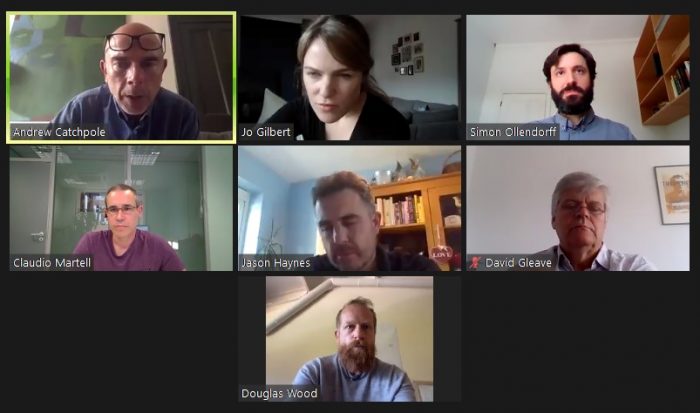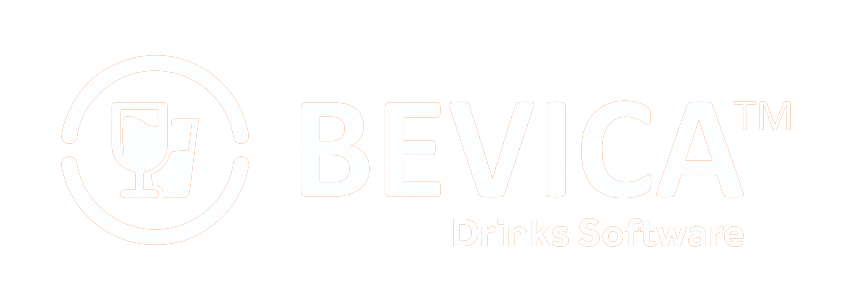Introduction to the online panel session
This time last week, a group of drinks industry experts sat around a virtual table to discuss various ways that technology can deliver greater business efficiency. Hosted by Harpers Wine & Spirits, and supported by Claudio Martell, Bevica Product Manager, who was also on the panel. The overarching aim of the conversation was to discuss ways efficient ERP systems – such as Bevica – can be used to an organisation’s advantage, and how technology can therefore enhance and improve efficiency, streamline processes, and change the way any drinks business works day-to-day.
The Panel
The other members on the panel included Andrew Catchlove and Jo Gilbert – both representing Harper’s. Then a number of panellists from different sized drinks businesses were also on the panel. They included Jason Haynes from Flint Wines, David Gleave from Liberty Wines, and Simon Ollendorf from North South Wines – all three of whom already use Bevica; and finally Douglas Wood from Wood Winters.

Andrew opened the session, which was viewed by over 100 interested attendees. He set the scene, mentioning the pace of change business are undergoing due to COVID-19 an dhow many businesses have structured and realigned. With the backdrop of a looming recession many businesses have streamlined and competitive, with the help of technology to improve business efficiency. Claudio was introduced as the partner for the webinar, providing valuable technical knowledge where needed.
How has lockdown changed the way you work?
The session began discussing the ways that working in lockdown had changed the businesses represented by the panel. There were some common themes in that whilst ultimately business could carry on, the ways of working needed to be changed and technologies that weren’t previously used, are being called upon to increase efficiency. There was general consensus there was less disruption than expected across teams in the various organisations, and that in general office life encourages greater collaboration. Jason said that remote working has “increased the need for being organised” which can be seen by business across the UK, and that he doubts if things will “go back to how it was before”.
Andrew agreed, saying that at Harper’s it was similar situation, with a pared back remote team. Simon added that he was surprised that it took “just one hour” to ensure the entire business was ready and set up to be working remotely. He put it down to the cloud based system set up six years ago (Bevica) and the IT network they were using. They hadn’t had to change anything in terms of setup as sales and operations had always had access to the system. David Gleave said that whilst he was pining for restaurants, and given that 60% of Liberty’s business is restaurants they were adapting and doing well with the independent off trade. He said that the coronavirus situation had forced them to focus and find new ways of doing things. And I think this can be said of all businesses regardless of sector up and down the country. This has given business owners and decision makers’ time to reflect on the systems and processes they are using, to see if they truly deliver value and add value to their businesses.
How many of these changes will remain in place?
Jason seemed to think that they wouldn’t go back to a full office. Meetings like this one (the Zoom session) were working really well and that they will become the norm. From a personal point of view not going to the office was saving him three hours a day commuting, so it was working for him. “Just because we’ve been doing something for 30 years, doesn’t mean it’s the right thing. This situation has presented us with many opportunities.” Doug agreed saying that having cloud IT was of utmost importance. That and an integrated web system and IT system. (Ed: This is exactly what Bevica can provide.) David then added that they “weren’t a wine company, but a logistics’ company”. He continued that there’s no point having the best wines if you can’t get the right wine to the right customer at the right time. He added that this had forced them to look at ways of becoming more efficient.

How can technology make systems become more efficient, i.e. like Bevica? And how much do they cost?
Andrew asked how can businesses come out fighting fit on the other side of the recession? What should people be asking of their systems, where can they improve and how can they become more efficient? Ably answered by Claudio, Bevica can do all of these thing sand more for a business. He explained that all of those questions had previously already been asked by Bevica clients. Claudio said that flexibility is key, implementing new ways of working – all about saving time. From a system point of view, systems can be integrated. ERP, web, deliveries – they call talk to each other. You don’t need to replicate date. Distribution challenges can be met (with Bevica), ensuring the right stick at the right time. It is clear that consumers are changing the way they buy their wine – the online sales channel is key and will remain so after lockdown is over. The cost depends on the size of the business, and the amount of integration required.
Backend system vs front end
Andrew then talked about a back end system which often lead to headaches, rather than the perceived sexy front end of tastings and paired food. Andrew said “We are all in because of the wine. But looking after the wine is only part of it. Yes I’d rather be in the tasting room rather than talking about the system. But you have to do both.” Jason agreed saying that “Bevica is a whole system solution, doing all things in one place, bonded warehouse, CRM”. Claudio then answered a few online questions about processes for buying online and the integration of orders with an ERP. “Everyone has their own language to create an order, bevica can integrate everything. Ultimately it’s a sales order, product, quantity. We recognise that sometimes you need to integrate tow systems, e.g. Bevica and a website, and we can do this. Bevica has a set of APIs. Cam for example send tracking info from Bevica to and fro so you can see where the order is, you can even trigger text messages about the delivery. But integration where it makes sense is key, don’t just do it for the sake of it.” This is just one example of how technologies like Bevica can improve business efficiency and bring beverage companies into the modern era.

Is multi-tasking important – and how does it tie in with technology?
This was a question asked by one of the attendees. David said that should “always have been a requirement, but it’s also an attitude.” He continued: “You always need people who are multi-tasking and that can look beyond their own block of desks and look to the other parts of the company.” Jason agreed and said that he valued people who see where their job can take them and saw a need that they hadn’t even considered. By investing in technology enables us to do what we’re actually good at. If tech is working well in the office, I can spend more time as a buyer looking at wine with producers. A system that incorporate lots of elements of the business as Claudio mentioned earlier allows people to understand what’s going on across the business.
Final thoughts……
Doug stated that “the point of good technology is that it makes your business simple and intuitive” and this is precisely how Bevica can help. Claudio added that from a Bevica angle, there is a number of new projects happening. Businesses who see this time as an opportunity to review and change systems, looking to the future”.
For more information about Bevica and other technology to improve business efficiency visit the website bevica.co.uk or get in touch with Claudio hello@bevica.co.uk or 01483 751888.
Read the Harper’s event review here.
Watch the recording here .

